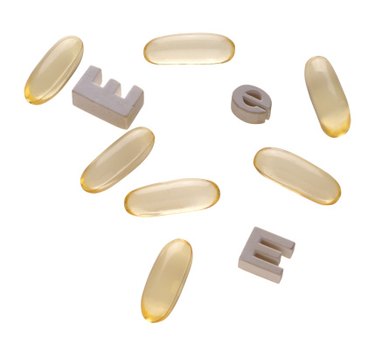
Human papillomaviruses, or HPV, are highly infectious viruses that are spread through skin-to-skin contact with someone who has a type of the virus. The virus enters your body through a cut or scratch on the surface of your skin. Out of 100 types of HPV viruses, approximately 30 appear to increase your risk of developing reproductive system and anal cancers, according to Adina Nack, author of the book "Damaged Goods?: Women Living with Incurable Sexually Transmitted Diseases." The most common HPV symptoms are warts and lesions that appear on your genitals and anus. Certain supplements can provide you with the vitamins that you need to fight the HPV infection. Be sure to ask your medical practitioner about the use of supplements for your infection.
Vitamin A
Video of the Day
Supplementing with vitamin A can help you fight HPV. Vitamin A is a fat-soluble vitamin that strengthens your immune system, lowers your risk of developing reproductive cancers and delays abnormal cervical cell growth, according to Michael Zimmermann, author of the book "Burgerstein's Handbook of Nutrition: Micronutrients in the Prevention and Therapy of Disease." The recommended daily allowance for adult females is 2,333 international units, or IU. Women who are pregnant should not take vitamin A supplements because it can cause birth defects. Vitamin A can be found in apricots, alfalfa, parsley, sage, carrots, pumpkin, liver, milk, spinach, carrots, kale, mango and oatmeal.
Video of the Day
Folic Acid
Taking folic acid can help you combat HPV. Folic acid, also known as vitamin B-9, may lower your risk of developing cervical dysplasia and reduce the amount of homocysteines in your body, according to Tori Hudson, author of the book "Women's Encyclopedia of Natural Medicine: Alternative Therapies and Integrative Medicine for Total Health and Wellness." Homocysteines are damaging proteins that can alter your cervical cells. Hudson explains that low levels of folic acid can cause precancerous or cancerous lesions to form on your cervix. The recommended daily allowance for women of child-bearing age is 400 micrograms. Folic acid can be found in spinach, kale, turnip greens, Swiss chard, black-eyed peas, lima beans, broccoli, cauliflower, cantaloupes, avocados, bananas, strawberries and raspberries.
Vitamin C
Increasing your vitamin C intake may help reduce HPV symptoms. According to Judith Brown, author of the book "Every Woman's Guide to Nutrition," vitamin C is a water-soluble antioxidant that strengthens your immune system, prevents free radicals from damaging your reproductive system, decreases inflammation in your body and accelerates the healing process. The recommended daily allowance for adult females is 1,000 mg. Vitamin C can be found in oranges, grapefruits, lemons, limes, spinach, kale, Swiss chard, strawberries, cranberries, cantaloupes and green peppers.
Vitamin E
Supplementing with vitamin E can help you heal from HPV. According to Steve Blake, author of the book "Vitamins and Minerals Demystified," vitamin E is a fat-soluble vitamin that improves immune system function, lowers your risk of developing cervical cancer, supports healthy reproductive function, decreases inflammation in your body, aids in tissue production and helps repair damaged tissues. The recommended daily allowance for adult females is 15 mg. Vitamin E is found in wheat germ, corn, nuts, olives, soybeans, sunflower oil and peanut butter.